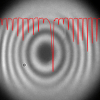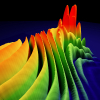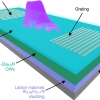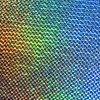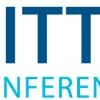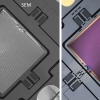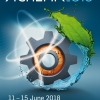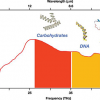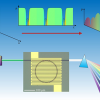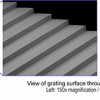News
Photonics & Optics News
Quantum mechanically entangled light particles allow a glimpse into previously invisible wavelength ranges, thus bringing about new possibilities for imaging techniques, microscopy and spectroscopy.
The ability to combine and recombine solitons opens new applications in spectroscopy and materials processing.
Researchers at Empa in Switzerland have developed a simple device to visualise SWIR radiation.
An international team of scientists have achieved giant non-linearity of UV hybrid light-matter states up to room temperature in a waveguide made of AlInGaN.
Wasatch Photonics achieves ISO 9001:2015 certification for their volume phase holographic diffraction gratings facility.
Strong investment in photonics will help us fight infectious diseases that kill an unimaginable number of people and prepare us against future pandemics, says Dr Jürgen Popp of the Leibniz Center for Photonics in Infection Research (LPI) that is currently under construction in Jena.
A new research project in partnership between academia, companies and the Netherlands Forensic Institute to develop ways to chain analytical techniques together to gain complementary information.
Research at NPL has revealed unusual qualities in light with future applications for synchronously pumped optical frequency comb generation and resonator-based sensor technologies.
Applications for this prestigious award are invited by 30 November 2018.
Combining metasurface lenses with MEMS technology could add high-speed scanning and enhance focusing capability of optical systems.
Achema 2018 is inviting contributions to the Achema Congress and the PRAXISforums; deadline 22 September 2017.
A cooperation between Messe München India and the Indian Pharma Machinery Manufacturers Association (IPMMA) will collocate events jointly representing 600+ global and Indian companies.
TOPTICA Photonics and Menlo Systems have entered into a license agreement for the use of patented frequency comb technology.
Nanostructure-based lenses provide focussing and dispersion, and allow smaller devices with increased functionality.
A chip-based device can generate a laser signal with frequencies spaced in a comb-like fashion. In general, light and water waves alike stretch out and dissipate as they move further and further away from their source. However, there is a type of wave that maintains its shape as it propagates: solitons.
A new infrared light source with unprecedented sensitivity allows molecular fingerprints of cancer cells.
VTT Technical Research Centre of Finland has developed a miniature gas sensor that can be connected to mobile devices. Gas measurements made with smartphones will make activities such as the detection of internal air problems easier. In addition, sleep quality will be measurable with greater precision, using mobile healthcare applications which gauge carbon dioxide quantities.
Researchers have solved a key obstacle in creating the underlying technology for miniature optical sensors to detect chemicals and biological compounds, high-precision spectroscopy, ultra-stable microwave sources, and optical communications systems that transmit greater volumes of information with better quality.
Germanium immersion gratings could enable smaller, higher-efficiency infrared spectrometers for astronomy and other applications.

